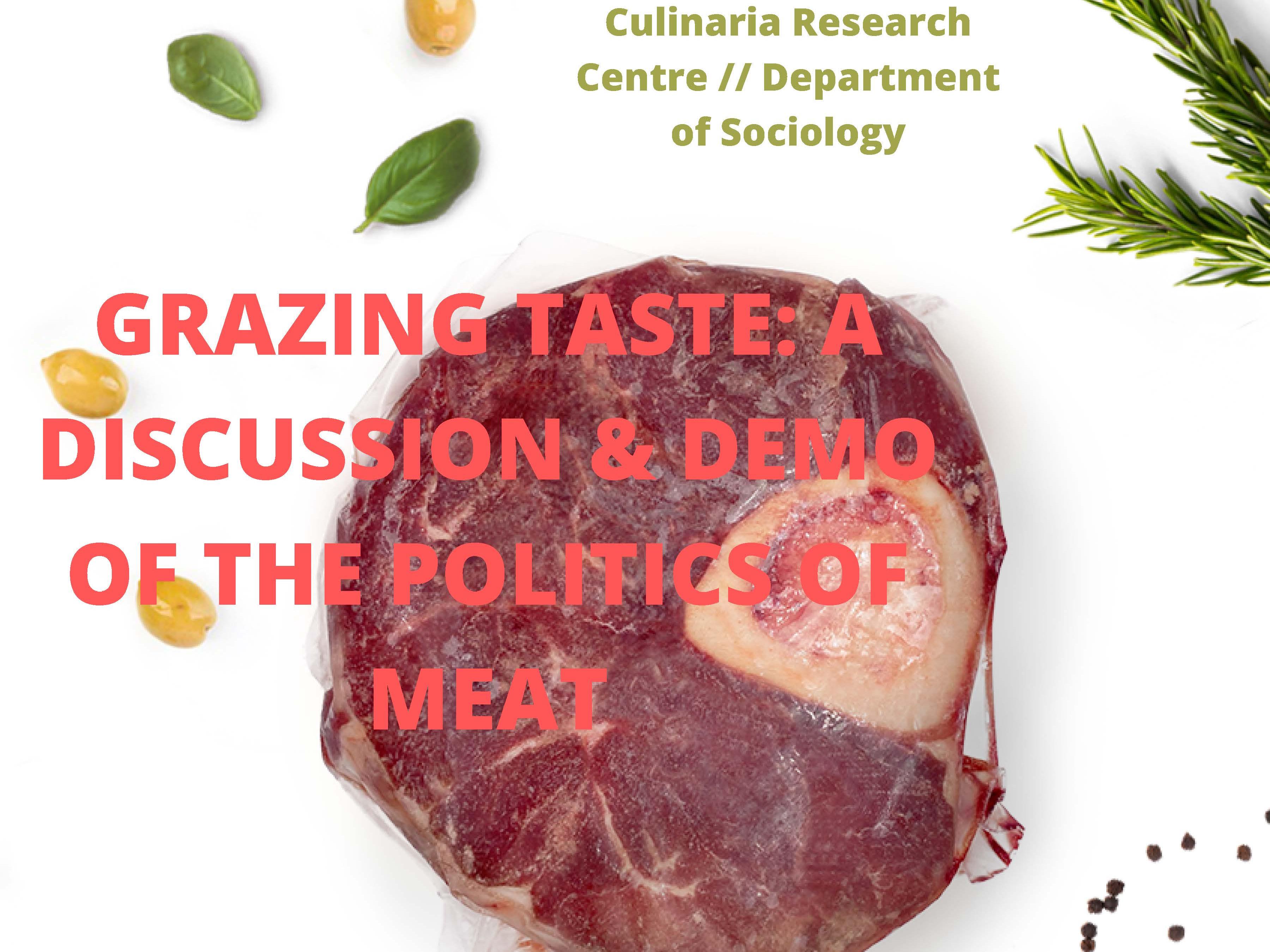
“Grazing Taste” is a panel discussion focusing on the politics of raising, eating, and tasting meat. This event will include a tasting of grass-fed, ethical beef from Blackview Farms.
Featuring:
Mark Schatzker, an award-winning writer based in Toronto. He is a writer-in-residence at the Modern Diet and Physiology Research Center at Yale University, and a frequent contributor to The Globe and Mail (Toronto), Condé Nast Traveler, and Bloomberg Pursuits. He is the author of "The Dorito Effect: The Surprising New Truth about Food and Flavor" and "Steak: One Man’s Search for the World’s Tastiest Piece of Beef."
Bill Parke, a grass-based livestock producer, working Blackview Farms and beyond to supply consumers hungry for quality and ethical meat. In his work to raise and sell pasture-fed beef, poultry, and pork, Bill has refocused meat farming practices to focus on the principles of “flavor, nutrition, and humane treatment,” in a model that prioritizes localized relationships between meat producers and consumers. With Mark Schatzker, Bill has worked to create a new methodology for producing tasty and ethical meat.
Professor Shyon Baumann (U of T, Sociology), whose work centres on several key concepts, those of evaluation, legitimacy, status, cultural schemas, and inequality. He has investigated these questions in the cases of the Hollywood fim industry, Canadian television advertising, and gourmet food. He is currently studying changes over time in the news framing of economic inequality, with a focus on a comparison between Canada and the United States.
Professor Josée Johnston (U of T, Sociology), who focuses on advancing knowledge in the sociological study of food and consumer culture. She has engaged various empirical topics (ranging from food politics to celebrity chefs to the Dove Campaign for Real Beauty), and is centrally concerned with understanding how cultural and political forces reproduce and legitimate the inequitable and unsustainable features of capitalist economies, and uses food to make connections across the sub-fields of culture, gender, and political sociology.
Profs. Baumann and Johnston are currently engaged in a collaborative project on the political dimensions of food consumption and together they are beginning to investigate the ways that consumers think about buying and eating different kinds of meat.
Professor Emily Kennedy (UBC, Sociology), who works on engaging environmental sociology and the sociology of consumers and consumption to interrogate how individuals, groups, and communities seek to effect positive changes to the natural environment. This includes research on sustainable consumption motivations, the (re)production of social inequality through environmental concern and eco-friendly practices, the politicization of private consumption, and unpacking the paradoxical relationships among environmental concerns, pro-environmental behaviours, and environmental impact.